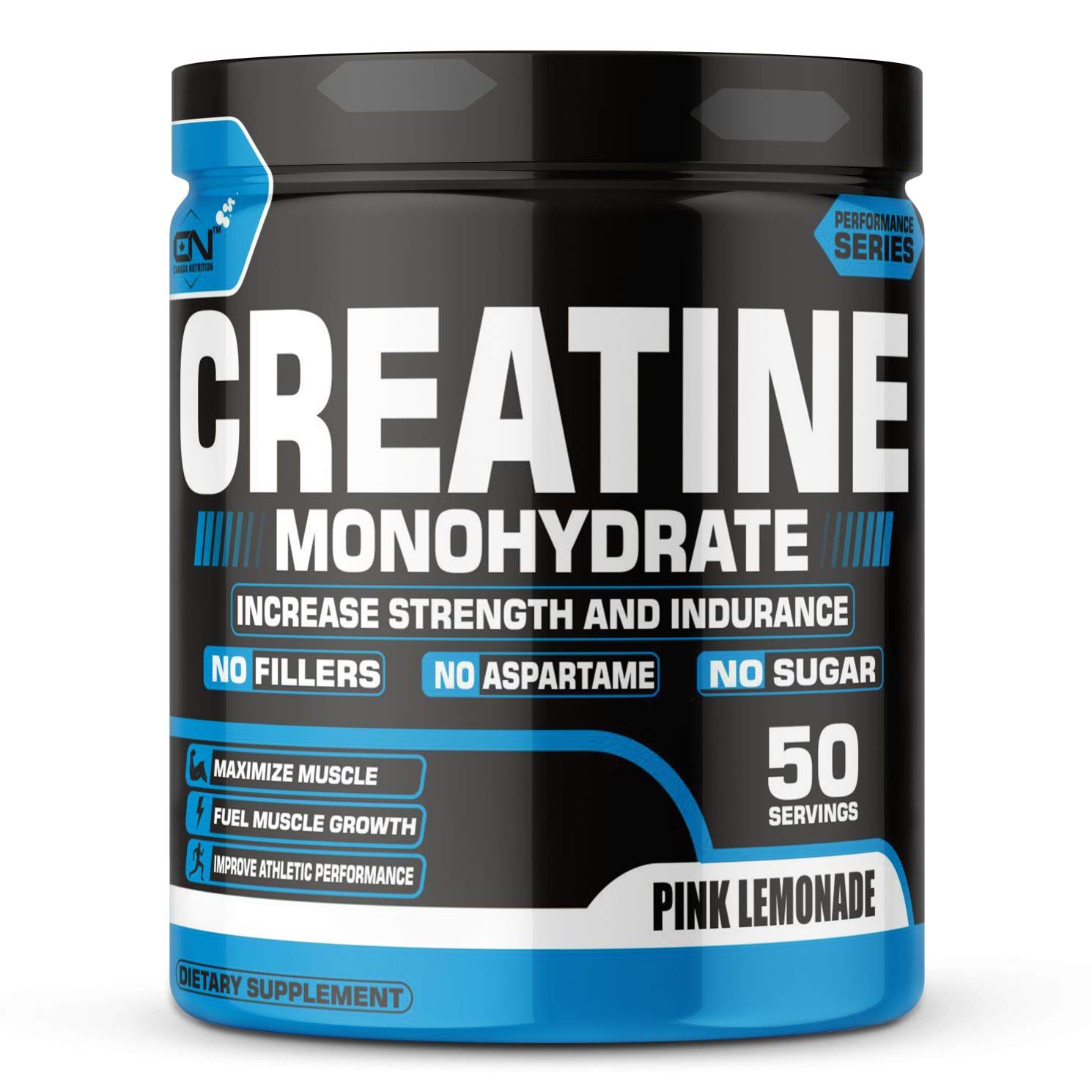The Benefits And Side Effects Of Creatine
The Benefits And Side Effects Of Creatine. What is Creatine? Creatine is an amino acid (amino acids are the building blocks of protein) that is made in the body by the liver and kidneys and is derived from the diet through meat and animal products.
Creatine (Creatine monohydrate) is a colorless,
- Crystalline substance used in muscle tissue for the production of phosphocreatine,
- An important factor in the formation of adenosine triphosphate (ATP),
- The source of energy for muscle contraction and many other functions in the body.
What does Creatine normally do in the body?
- In the body, Creatine is changed into a molecule called “phosphocreatine” which serves as a storage reservoir for quick energy.
- Phosphocreatine is especially important in tissues such as the voluntary muscles,
- And the nervous system periodically requires large amounts of energy.
The Benefits And Side Effects Of Creatine
Why do athletes take Creatine?
- Studies have shown that Creatine can increase the performance of athletes in activities that require quick bursts of energy,
- Such as sprinting, and can help athletes to recover faster after expending bursts of energy.
- Creatine is best for the serious bodybuilder.
- It helps increase muscle mass, rather than muscle endurance,
- However, the increase in muscle mass may be due to water retention and not an increase in muscle tissue.
Why have I been hearing so much about Creatine and neuromuscular disorders?
- Two scientific studies have indicated that creatine may be beneficial for neuromuscular disorders.
- First, a study by MDA-funded researcher M. Flint Beal of Cornell University Medical Center demonstrated,
- That Creatine was twice as effective as the prescription drug Riluzole in extending the lives of mice with the degenerative neural disease amyotrophic lateral sclerosis (ALS, or Lou Gehrig’s disease).
- Second, a study by Canadian researchers Mark Tarnopolsky and Joan Martin of McMaster University Medical Center in Ontario found,
- That Creatine can cause modest increases in strength in people with a variety of neuromuscular disorders.
I want to start taking Creatine- is it safe?
- For the most part, athletes haven’t experienced adverse side-effects from taking Creatine,
- Although recently there have been a few reports of kidney damage linked to Creatine usage.
- No consistent toxicity has been reported in studies of Creatine supplementation.
- Dehydration has also been reported to be a problem while taking Creatine.
- Athletes generally take a “loading dose” of 20 grams of Creatine a day for five or six days,
- Then continue with a “maintenance dose” of 2 to 5 grams of Creatine a day thereafter.
The Benefits And Side Effects Of Creatine
What are the side effects of Creatine?
- Little is known about the long-term side effects of Creatine,
- But no consistent toxicity has been reported in studies of Creatine supplementation.
- In a study of side effects of creatine, diarrhea was the most commonly reported adverse effect of Creatine supplementation,
- Followed by muscle cramping.
- Some reports showed that kidney, liver,
- And blood functions were not affected by short-term higher amounts or long-term lower amounts of Creatine supplementation in healthy young adults.
- In a small study of people taking 5-30 grams per day, no change in kidney function appeared after up to five years of supplementation.
- Muscle cramping after Creatine supplementation has been anecdotally reported in some studies.
The Benefits And Side Effects Of Creatine
How to Drink Creatine?
- Creatine, or 2-[Carbamimidoyl(methyl)amino] acetic acid, is an amino acid naturally produced by the body to produce energy and make muscles larger and stronger.
- Concentrated, powdered Creatine is a popular dietary supplement for people who want to increase their muscle mass.
- Learn how to drink powdered Creatine correctly to get the most out of this powerful substance.
The Benefits And Side Effects Of Creatine
Starting a Creatine Routine
Choose a Creatine powder.
- Creatine powder usually comes in a large plastic container with a scoop inside for measuring out the correct dosage.
- Go to a nutrition store or health food store and select a powder to use.
Avoid liquid Creatine.
- Manufacturers of such products are pulling a fast one on consumers.
Decide whether to “load” or base your dosage on your body weight.
- Creatine manufacturers recommend starting out with a high dosage of Creatine and gradually waning to a “maintenance” dose to maintain Creatine levels in your body.
- It is also common to forego the loading period and base your dosage on body weight.
- Creatine may affect insulin levels, so if you have a condition related to high or low blood sugar, use caution when taking high doses.
- You may want to consider the more moderate body weight-based method.
Take Creatine at the same time every day.
- It doesn’t matter when you take your Creatine; whether you consume it in the morning or at night, it will have the same effect on your body.
- However, for best results, consume it at the same time each day so that your body has time to process one dose before you consume the next one.
- Some people like to take Creatine right before a workout, but its effects aren’t instant, so it doesn’t actually provide an immediate energy boost for weight-lifting and other exercises.
- If you want to take Creatine on the go, bring a separate water bottle and store the Creatine dry.
- If you premix it, the Creatine will degrade.
The Benefits And Side Effects Of Creatine
Loading Creatine
Measure out 5 grams of Creatine powder.
- When you’re loading creatine, 5 grams is the recommended dosage to start with,
- Use the plastic measuring cup that came with the powder to measure it out.
- If your can of powder didn’t come with a measuring tool, measure one heaping teaspoon, which is roughly equivalent to 5 grams.
Mix the powder with one quart of water.
- Pour the powder directly into the water and use a spoon to quickly stir it.
- If you’re using a bottle with a cap, you can close the cap and shake it.
- You may find it convenient to buy a quart-sized water bottle with a lid, which you can carry with you for times when you want to take a dose of Creatine outside the house.
- You can also mix Creatine with juice or an electrolyte-containing energy drink.
The Benefits And Side Effects Of Creatine
Drink the Creatine immediately.
- Chase the Creatine with more water.
- It’s important to stay well hydrated while you take Creatine, so follow it up with another cup or two.
- Eat and drink as normal.
- There are no dietary contraindications for Creatine, so you may eat a normal meal before or after consuming it.
Take 4 doses a day for the first 5 days.
- When you’re loading Creatine, you need a total of 20 grams a day for the first five days.
- Space out the doses so you have one at breakfast, one at lunch, one at dinner and one before bed.
Taper off to 3 to 5 grams a day.
- After the initial 5-day load, taper off to a comfortable maintenance routine.
The Benefits And Side Effects Of Nutrition Creatine
Basing Your Dosage On Body Weight
Calculate your dosage for the first week.
- During the initial stage, your dose should be 0.3 g of Creatine per kg of body weight.
- Divide the total number per day into easily consumable amounts.
- For example, if you weigh 68 kg (150 pounds), multiply that by 0.3 to find that your daily dosage should be 20.4 g.
- That means you should take approximately 5 grams of Creatine per dose, 4 times per day.
Calculate your dosage for the second week.
- During the second week, taper off to a dosage of 0.03 g of Creatine per kg of body weight.
- This time, divide the total dose into 2 or 3 easily consumable amounts.
- If you weigh 68 kg (150 pounds), multiply that by 0.03 to find that your daily dosage should be 2.04 grams of Creatine per day.
- You can divide that into two doses of 1.02 grams.
Canada Nutrition Creatine Monohydrate
- Canada Nutrition Creatine Monohydrate,
- Strength,
- Reduce Fatigue,
- 100% Pure Creatine,
- Lean Muscle Building,
- Supports Muscle Growth,
- Athletic Performance,
- Recovery [50 Servings, Pink Lemonade]
About this item
-
LEAN MUSCLE BUILDING:
- Canada Nutrition Creatine Monohydrate natural Creatine powder delivers potent muscle-building Creatine to muscle cells, resulting in an increase in muscle strength, power, and energy
-
SUPERIOR ABSORPTION:
- Canada Nutrition Creatine Monohydrate has been micronized by reducing large Creatine molecules into smaller particles to optimize the bioavailability,
- And absorption
-
INCREASE STRENGTH & REDUCE FATIGUE:
- The Canada Nutrition Creatine Monohydrate serves as an energy source in your muscle cells, helping to increase strength and reduce fatigue allowing you to lift heavier, run further faster & improve physical performance
-
SUITABILITY:
- The Canada Nutrition Creatine Monohydrate can be used by everyone, from active men and women to high-performance athletes, powerlifters, crossfitters, bodybuilders, etc.
- It helps in muscle volumization, increases protein synthesis, and enhances your body’s capacity to perform high-intensity workouts.
- https://amzn.to/3s6cMjl
Tips
-
If Creatine monohydrate gives you stomach cramps,
- or other effects (everyone is different) try decreasing your dose or using a different type of creatine (ethyl ester for example).
- Loading is not required, but it may speed up the maturation process.
- Mix the Creatine with a high carbohydrates mass gainer,
-
and extra additive sugars from cocoa powders and honey for a tasty and effective post-workout drink.






